Sharing Knowledge: Conferences and Communities
Doctoral projects are an essential part of ISWE’s mission to more clearly understand the histories, cultures and landscapes of Wales. We are extremely proud of the multi-disciplinary nature and broad geographical scope of our doctoral projects – six completed and thirteen ongoing at present.
We encourage our doctoral researchers to submit papers for conferences, as these are an excellent way of sharing ongoing research and testing arguments in a supportive and constructive environment during the course of the project, as well as disseminating findings after the completion of a project.
However, as public and community engagement is one of the core principles which guides our work, we also encourage our doctoral candidates to share their research with historical societies and heritage groups beyond the realm of academia. We recognise the desire of the Welsh people to understand the heritage of their local area, and as many of our doctoral projects are place-specific case studies, we encourage our researchers to share their findings with the communities they are researching. Furthermore, we recognise the substantial repositories of knowledge and expertise related to our interests which reside within local communities, so we see public talks as a way of exchanging knowledge.
In this blog post, we’ll hear about the papers and talks delivered by members of our doctoral and doctoral graduate cohort in recent months.
Jeff Childs
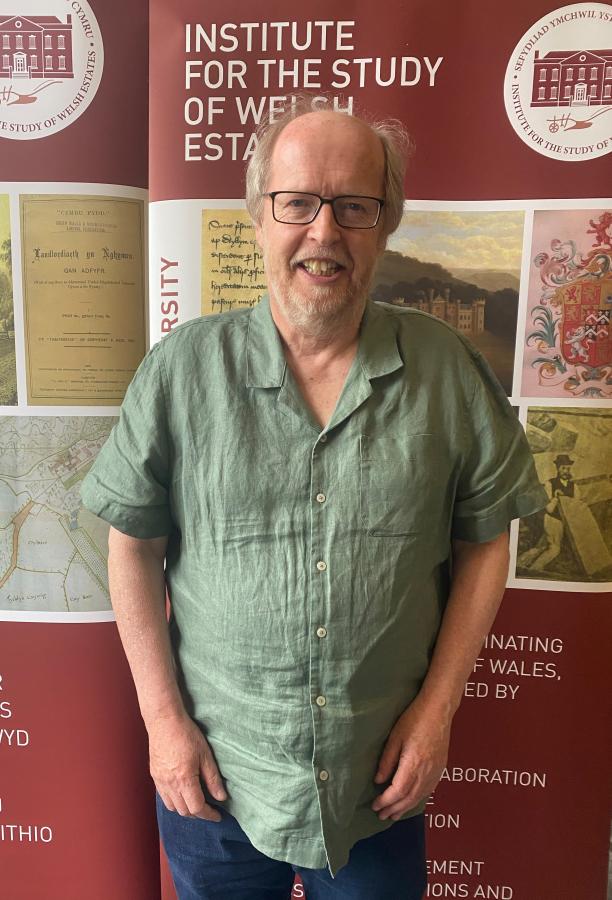
Jeff, who holds an MA in Local History from Cardiff University, joined ISWE in 2021 to research landownership changes in the lordship of Gower between 1750 and 1850, particularly the area formerly designated as Gower Anglicana. Based in south Wales, Jeff is an active member of several regional and local history societies and an Honorary Life President of the Roath Local History Society. He is a prolific speaker, who regularly gives place-specific talks on gentry families and estates, parishes and parish churches, and suburbs. In the past three months alone, Jeff has delivered three talks related to his doctoral research to Gower Society, Friends of Penllergare, and Baglan Men's Society. He already has several talks planned for 2026!
‘Gentry Families of the Lordship of Gower and their Estates’, talk for Gower Society on 28 March 2025 and Friends of Penllergare on 7 May 2025
For this particular talk, Jeff placed a strong focus on Gower Anglicana estates located in peninsular Gower and Swansea, although he did reach Penllergare in Gower Wallicana for the Friends talk. Among the estates included were Penrice, Kilvrough, Stouthall, Gellihir, Court House and Kittle Hill, Sketty Park, Sketty Hall, Singleton Abbey, Danygraig and Penllergare. The origins of the estates were explored as were subsequent changes in ownership and size. Several estates which owned land in the lordship, but whose principal residences were located outside the area, were also included in the Gower Society talk.
‘The Parishes and Parish Churches of the Lordship of Gower’, talk for Baglan Men's Society, 28 April 2025
This talk was an illustrative survey of the twenty-four ancient parish churches of the lordship of Gower with Kilvey, from medieval times to the present day with the parishes providing the geographical context. There was a focus on origins, dedications, stylistic variations and changes over time. Several landed properties were also included to give added context and the roles gentry families played in restorations.
Anna Reynolds
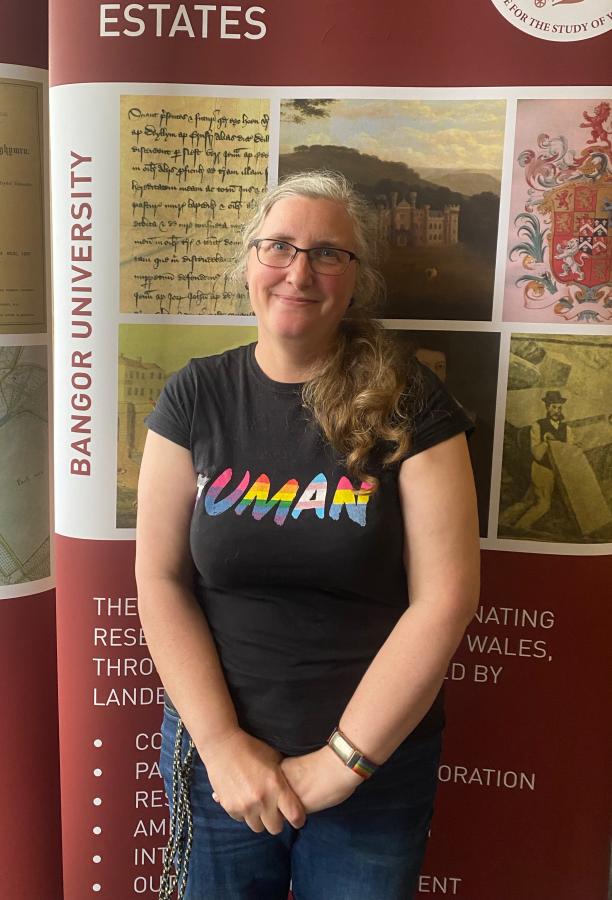
Anna is researching the abandoned upland settlements of the Eastern Carneddau in the period c.1700-1950. Her aim is to explore the origins of these settlements, provide a fuller picture of community and daily life within them, and to explain why they were eventually abandoned in the late-nineteenth and early-twentieth century. Anna is particularly interested in the potential of archival material such as parish records, wills, and other probate documents to highlight the daily lives, familial relationships, and community connections of the poorer sections of society.
‘The East Carneddau Uplands – A Family Network’, paper at Welsh History Postgraduate Conference in Cardiff University, 3-4 June 2025
This two-day conference was organised by the Cardiff Centre for Welsh History and sponsored by Cardiff University and the Learned Society of Wales. The first day consisted of papers from postgraduates and early career researchers on all aspects of Welsh history, followed by a workshop on the value of digital humanities. Anna’s paper examined modes of upland life in the period c.1700-1950. Her research showed the area in this period to be a place of scattered settlements connected by tight family networks. Upland families appear to stay in the uplands, moving from house to house but often only retiring to the lowlands when forced by old age or infirmity. Anna also drew on archival material such as parish registers to provide evidence of upland intermarriage, as well as affairs outside of marriage; wills to show evidence of family closeness, as well as tensions; and inventories detailing wealth and means of living. She also explored how newspaper articles present another side to the story - romanticised views vying with a characterisation of these isolated peoples as dirty and illiterate. She concluded by suggesting ideas as to why these communities finally failed.
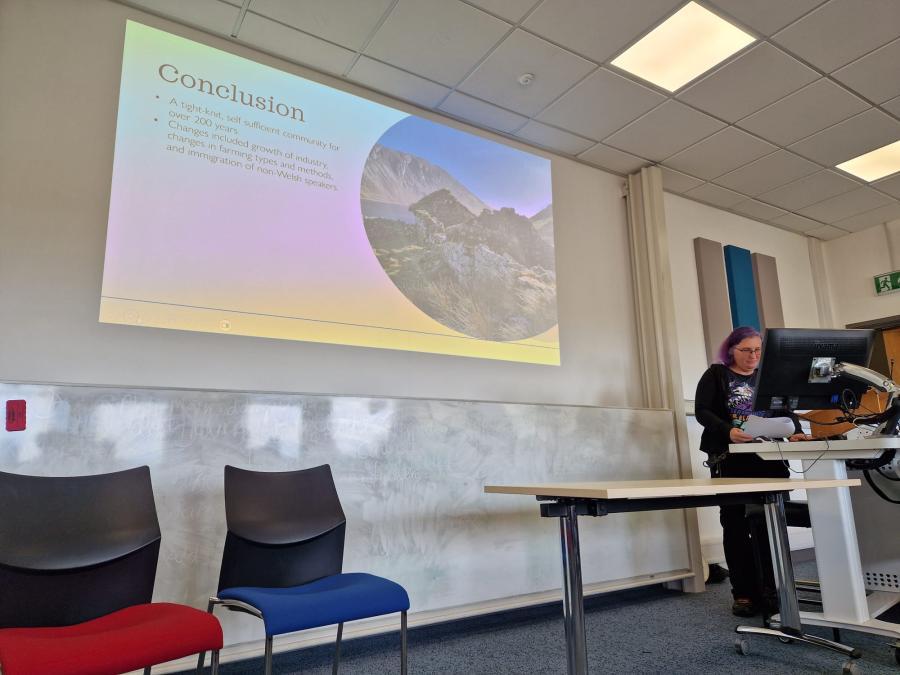
Alex Ioannou
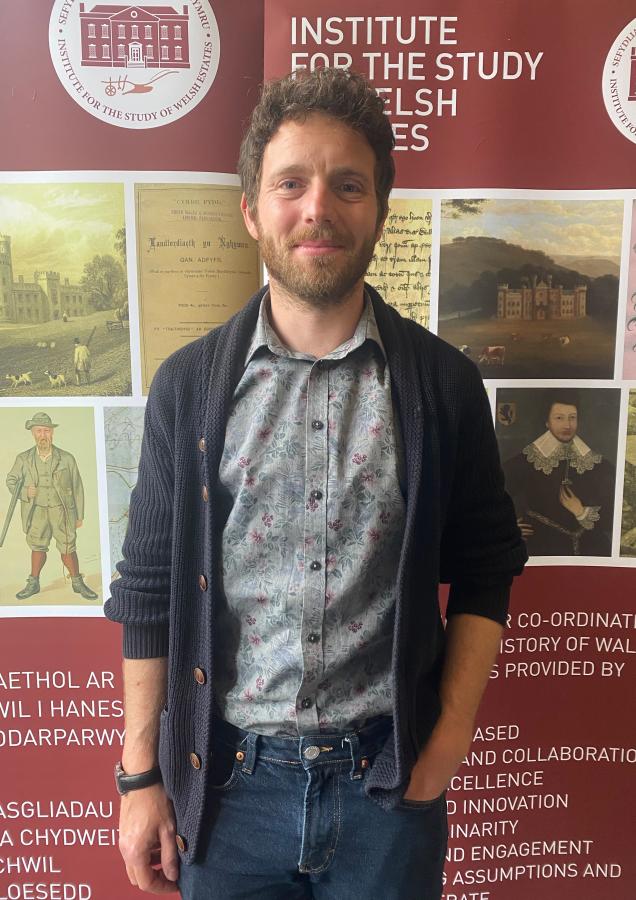
Alex’s project Reframing Wales, a joint initiative of ISWE and the Sir William Roberts Centre for Sustainable Land Use, explores the relationship between the people of north-west Wales and its ever-changing landscape. Community engagement is one of the central pillars of this project: Alex has conducted interviews with community members, landowners and activists; curated an exhibition at Pontio in Bangor; and organised show-and-tell-style community archive events in Bethesda, Llandegai and Tregarth.
‘Reframing Eryri: disturbing the sedimentation of a dominant discursive linear landscape historiography’, paper at the Association for Welsh Writing in English (AWWE) Conference at Gregynog Hall, 9-11 May 2025
The 35th annual conference of the Association for Welsh Writing in English (AWWE) explored the theme of ‘underscapes’, considering actual and physical ‘underscapes’ such as drowned villages, peatbogs and coalmines, as well as figurative and imagined ‘underscapes’ in the sociological realms of class, race and activism. Alex’s presentation described how his work seeks to ‘disturb’ the sedimentation of a linear historiography that has influenced and narrowed our ideas of Welsh places. He shared how his close-reading of historical evidence and archival material, as well as the employment of discourse analysis to mine official documentation can reveal rich and varied understandings of Welsh landscapes. The conference also included fascinating recitals of poetry and creative writing, as well as interesting talks which spanned subjects like Romanticism, Arthurian legends and Gothic Underscapes. Alex remarks: "The conference was maybe the best conference I have ever been to. AWWE is a group of people well worth connecting with!”
‘Biblical Landscapes’ at Bangor University, 10 June 2025
Co-organised by Alex, on behalf of ISWE, and the National Centre of Religious Education for Wales, this event brought together local students, scholars, artists, musicians, and the public to explore the deep connections between the Bible, landscape, identity and Welsh culture. Hosted in PJ Hall at Bangor University, the morning session welcomed over 100 local primary school students to explore the themes of cynefin and local places/myths/legends/religious connections. The evening session hosted a series of talks, recitals and musical experiences which helped deepen our collective understanding about how Wales is a landscape entwined with the past and current ideas and beliefs.
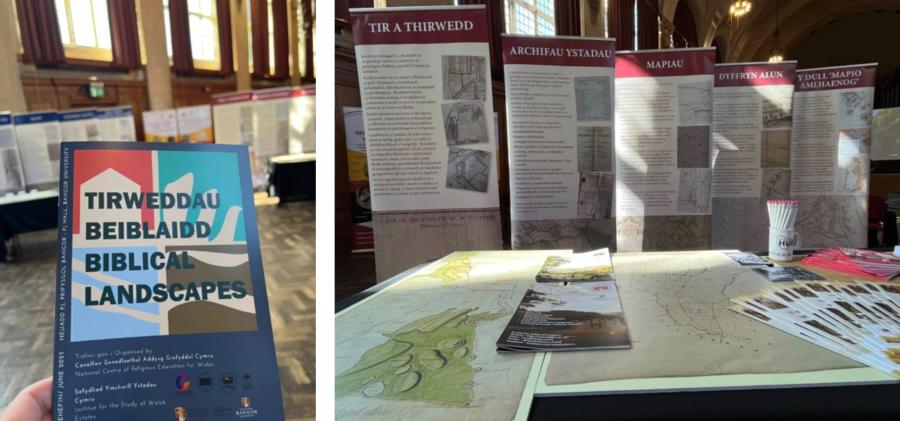
Dr Meinir Moncrieffe
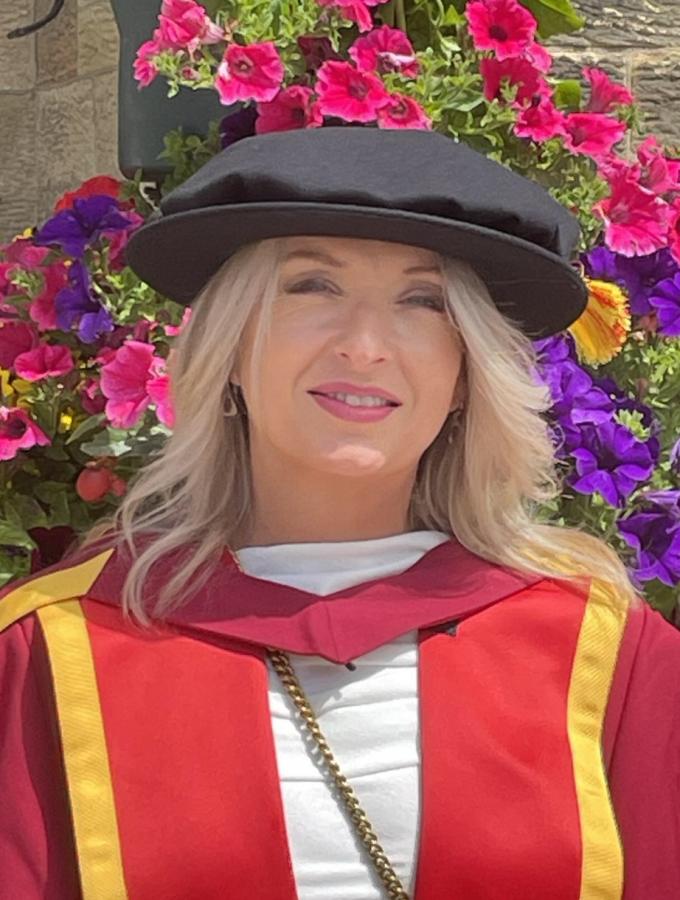
Meinir completed her doctoral project entitled ‘Projection and Perception: The Self-fashioning of Sir John Wynn of Gwydir’ in July 2024. Her project explored the story of Sir John Wynn (1553 – 1627), and his efforts to promote the prestige and pedigree of the Wynn family, not only as one of the preeminent uchelwyr families of Wales, but to establish the family as an important player in the squirearchy of late-Tudor Britain. Reflecting on her time at ISWE, Meinir recalled how presenting her research to her fellow doctoral researchers at the Annual Doctoral Symposium helped to build confidence in her public speaking, which culminated in her presenting her doctoral research to the Discovering Old Welsh Houses group in 2023. She has since gone on to give a talk at the group’s 2025 Annual General Meeting.
‘Country house confinements: the forgotten histories of a female gentry underclass’, paper at 23rd Annual Historic Houses International Conference at Maynooth University, 19-20 May 2025
The annual conference of our friends the Centre for the Study of Historic Irish Houses and Estates explored the theme of ‘everyday life in the county house’. It looked at the ways in which country houses were designed, modernised, managed, financed, powered, provisioned and occupied with a view to being a functional communal unit. Meinir’s paper explored the experiences of gentry women in the early modern country house, using the case study of Gwydir Castle. The Wynn family papers, including family correspondences and bardic work, were among the sources used to demonstrate the impact and value of the women in this influential gentry family. Themes of domestic abuse, murder, and adultery intertwined throughout the canon of papers alongside accounts of marriage matches, conspicuous consumption and lavish entertainment. Meinir demonstrated how the male heads of the Wynn family who dominated the political, cultural, and social scene in early modern north Wales were shaped by a cast of female relatives-actors who have remained hidden to a great extent over the years.
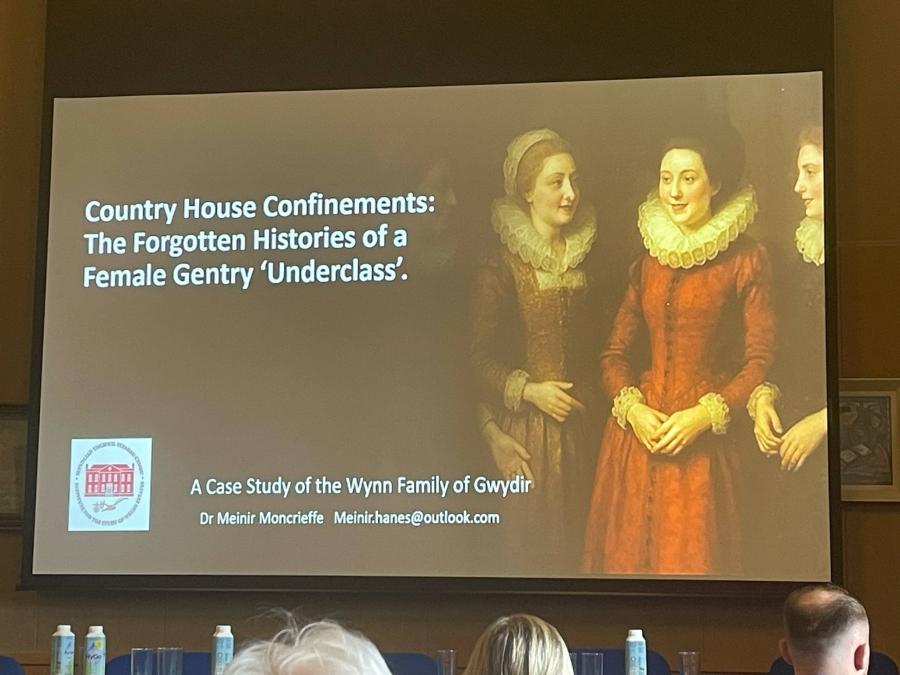
Vic Tyler-Jones
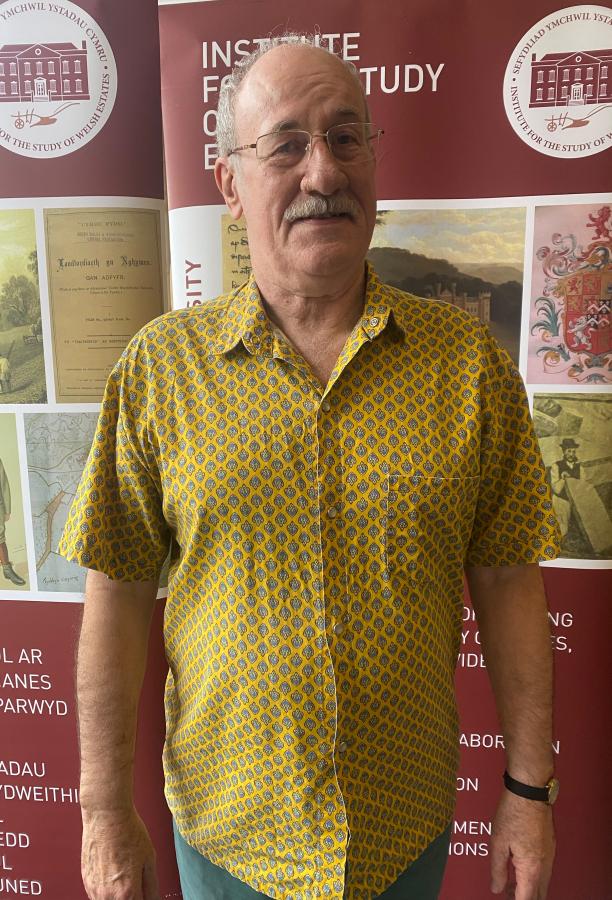
Squatter settlements arose in Wales in the early part of the nineteenth century, but the story of the individuals who lived in them has yet to be told; “accounts of the lives of the poor in North East Wales in the nineteenth century have largely stopped short of those on the bottom rung of society” explains Vic. He is addressing this shortcoming by researching the squatter colony on Newtown Mountain near Ruabon in the period 1845-1907. He is particularly interested in the people – where they came from, why they came, and what they were like. His research will also illuminate what daily life was like on the mountain, including the nature of the dwellings and how the inhabitants withstood the rigours of existence in this inhospitable place. However, he is also broadening the scope of the research to examine how the settlement related to the wider economy of the area. Vic is another prolific speaker, who has given no less than seven talks in 2025 so far, with another five in the diary.
‘A Trajectory of Marginality: the life of the squatter settlement at Newtown Mountain, 1848-1909’, paper at the College of Arts, Humanities and Social Sciences (CAHSS) Spring Research Conference at Bangor University, 2 April 2025
The CAHSS Spring Conference is an excellent opportunity for postgraduates across the college to share their ongoing research and practice their presentation skills, as well as an opportunity to get together and mingle. Vic’s paper detailed his research on daily life in the squatter settlement on Newtown Mountain. However, Vic has also delivered this paper as a talk to Discovering Old Welsh Houses, Ruabon Field Club, Cefn Mawr Historical Society, Wrexham Hearing Impaired Seniors, Broughton District History Group and Llai Luncheon Club. He also has forthcoming talks for Brymbo History Group, Audlem and District History Society, Holt Local History Society, Denbighshire Historical Society, and the Friends of Wrexham Museum.
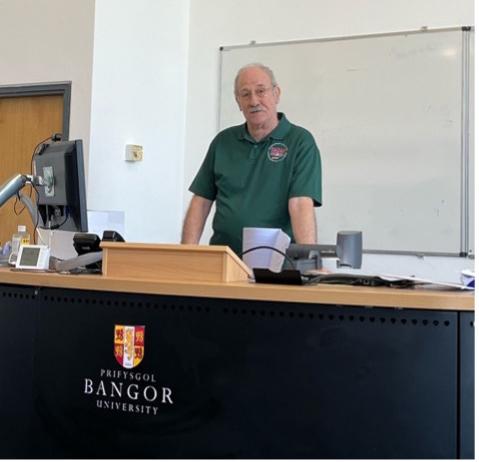
Hannah Jones
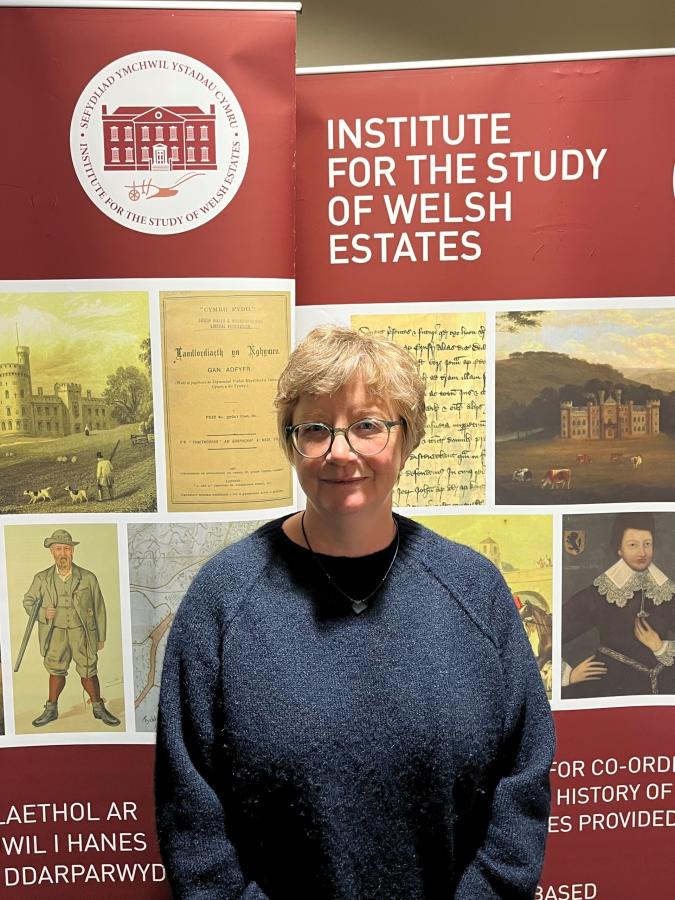
Hannah joined ISWE in 2024 to research the parish of Llanarthne in Carmarthenshire. Both townships and the parish are an under researched area in landscape history in Wales, and Hannah’s project entitled ‘Llanarthne: The Characterization of a Rural Welsh Parish 1609-1920’ aims to address this fact through a comprehensive characterization of the parish using a Deep Mapping technique to track changes in both landscape and land use. She is due to present her doctoral research at the forthcoming annual Women’s Archive Wales Conference. Hannah has recently undertaken research on Carmarthenshire sports women, which has been used to create an exhibition at Parc Howard Museum, Llanelli. She gave a talk on this research at the recent unveiling of a Purple Plaque for Agnes Davies, the late snooker and billiards player and the first Welsh sportswoman to be recognised by the purple plaque scheme.
‘Death, Inheritance and Injustice: Middleton Women Fight Back!’, forthcoming paper at the Women’s Archive Wales 28th Annual Conference in Aberystwyth University, 4-5 October 2025
ISWE has been well represented at the Women’s Archive Wales Annual Conference in recent years, and we are delighted to be represented once again this year. Hannah’s paper will explore the lives of women in the Middleton family from the sixteenth and seventeenth centuries. It will highlight the injustices they faced as a result of the death of close male relatives. Each of the women discussed faced injustice from authority figures who controlled the means by which they could access money and support their families. The different approaches they took to challenge these injustices, the constraints each woman faced which inhibited her ability to do so, and the varying levels of success they had in affecting change, will be addressed. The paper will show that these women were aware of the inequalities and injustices within society and their own lives. And that each of them in their own way tried to challenge the injustices they met.
We are extremely proud of our doctoral researchers and graduates for sharing their research so widely. This is a testament to the quality and interest of their research, and to the strong relationship that ISWE has built with other academic institutes, heritage organisations, historical societies, and heritage groups across Wales and beyond.
